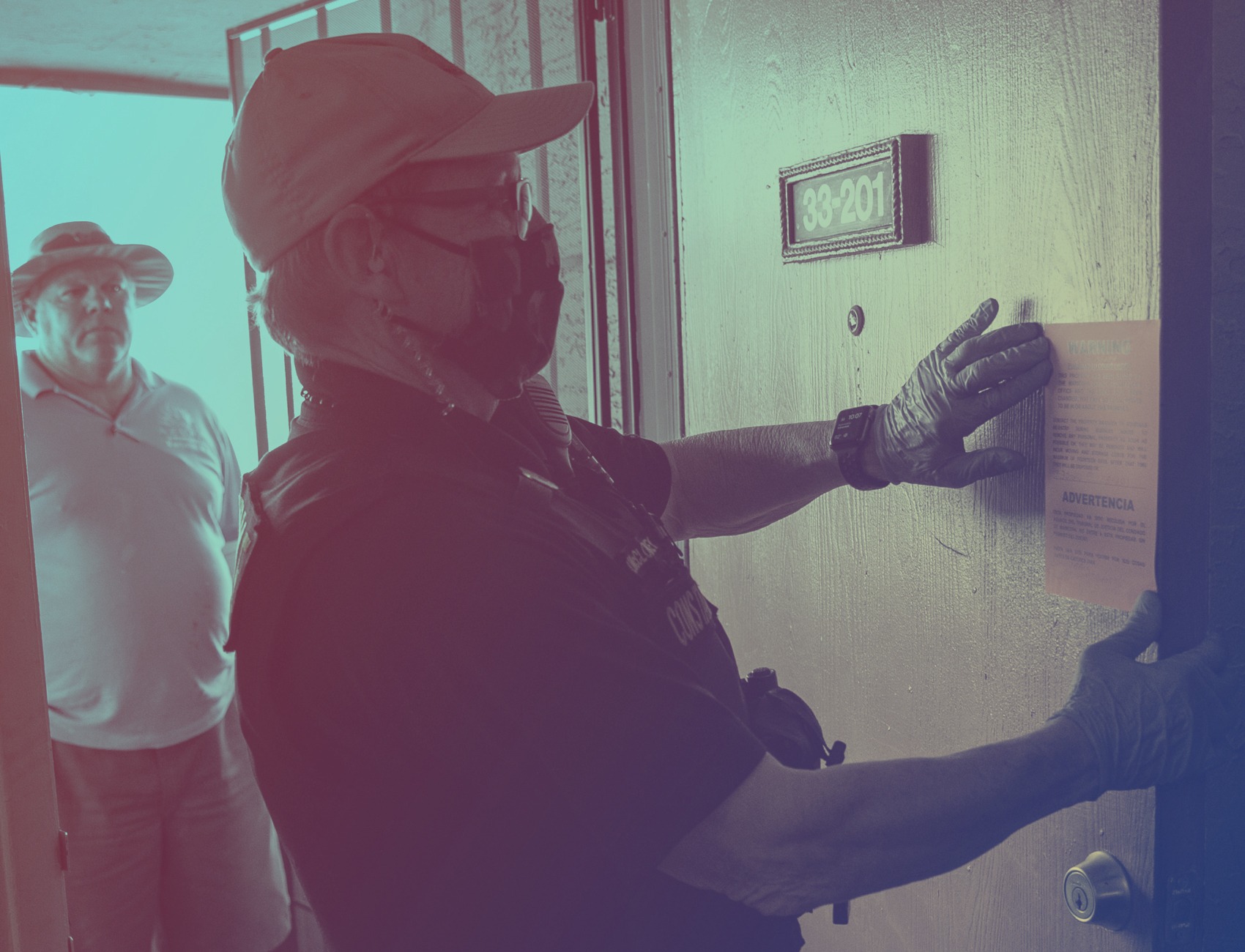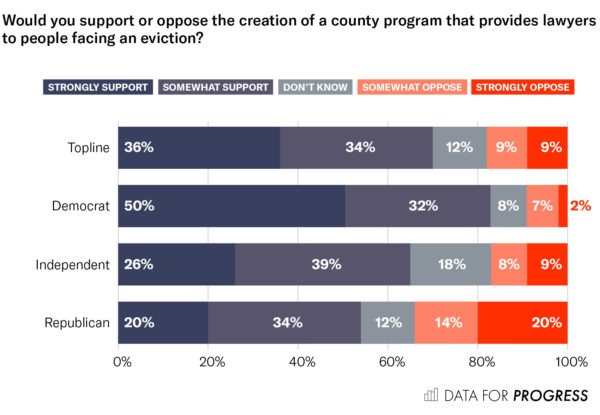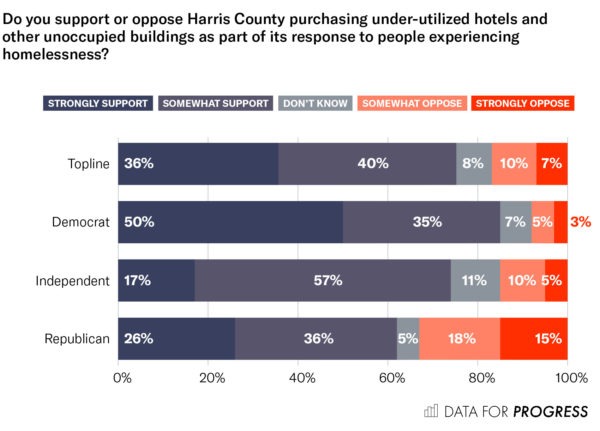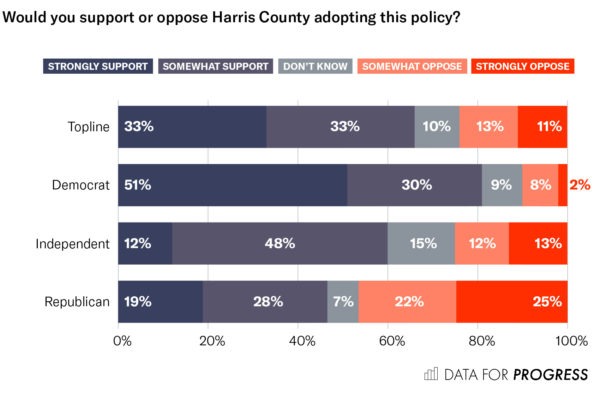Housing Policy In Harris County: Voters Want Safe Shelter, Right to Eviction Counsel
A new poll shows Harris County voter support for safe shelter for people experiencing homelessness and ensuring a right to legal counsel in evictions.

A new poll from Data for Progress and The Lab, a policy vertical of The Appeal, reveals broad support among likely Harris County voters for policies that address the housing crisis: providing safe shelter for people experiencing homelessness and ensuring a right to legal counsel in eviction proceedings.
- 71 percent of respondents support the creation of a county program that provides lawyers to those facing eviction;
- 76 percent support Harris County purchasing under-utilized hotels and other unoccupied buildings as part of its response to people experiencing homelessness;
- 66 percent support Harris County paying for people experiencing homelessness to stay in unoccupied hotel rooms.
Polling and Findings
Research shows that having a lawyer present during an eviction proceeding reduces the likelihood that someone is evicted.

Certain counties have purchased under-utilized hotels and other unoccupied buildings to address the needs of people experiencing homelessness. These counties believe that having people experiencing homelessness housed together allows them to consolidate support services, save money, and creates better outcomes for both people experiencing homelessness and their communities.

Certain counties have paid to put people experiencing homelessness into unoccupied hotel rooms as part of their response to the pandemic. These counties say that such actions will keep people experiencing homelessness safe and help slow the spread of the coronavirus.

Key Context
The economic consequences of COVID-19 have exacerbated an eviction crisis in Harris County. Harris County already had among the highest eviction rates of any county in the country before the pandemic, and since March 15, 2020 it trails only New York City and Phoenix with the third-most eviction filings in the country. Between January 2020 and January 2021, nearly 35,000 eviction cases were filed in Harris County, despite the federal eviction moratorium. Today, 42 percent of households in the Houston metro area say they are behind on rent or mortgage payments and thus likely to face eviction or foreclosure in the next two months.
A vast majority of tenants facing eviction do not have legal counsel in housing proceedings, where they face landlords who are almost always represented by an attorney. The lack of legal counsel for renters contributes directly to the high percentage of tenant loss in eviction court. Experience across a number of cities shows that having legal counsel empowers tenants to successfully fight eviction: Of tenants with legal representation, 86 percent in New York, 67 percent in San Francisco, and 93 percent in Cleveland avoided eviction. Guaranteeing a right to counsel in eviction court will also save cities and states significant costs: A study in Baltimore found that an investment of $5.7 million in such an effort would save an estimated $35.6 million.
Legislative momentum granting the right to counsel in eviction proceedings is growing: eight cities have already enacted such legislation and eight states are currently considering it. The federal COVID-19 relief legislation presents new opportunities and sources for funding state and local right to counsel mechanisms.
The pandemic’s fallout and rising evictions have also sent more people into homelessness. According to a recent annual count of Harris County’s unhoused population, 15 percent of those surveyed said that they became unhoused after losing a job or being evicted during the pandemic. Other jurisdictions have responded to this problem with action to increase the availability of housing for their unhoused community members. States like California and Oregon, for example, have introduced grant programs to buy underused hotels or buildings and convert them into temporary homes for people experiencing homelessness. Similar policies are gaining traction across Texas, too. Last month, Austin purchased two hotels and converted them into permanent housing for people experiencing chronic homelessness, and San Antonio is currently leasing two hotels to provide shelter during the pandemic.
Polling Methodology
From March 19 to March 26, 2021, Data for Progress conducted a survey of 466 likely voters in Texas using web panel respondents. The sample was weighted to be representative of likely voters by age, gender, education, race, and voting history. The survey was conducted in English. The margin of error is ±5 percentage points.

